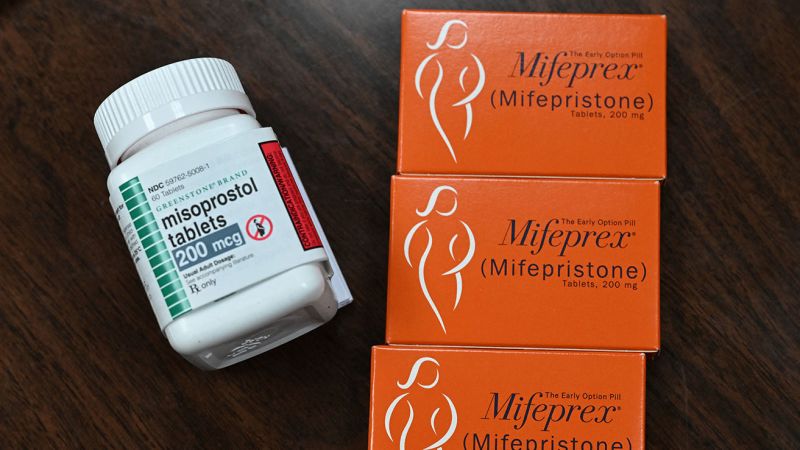Louisiana lawmakers on Thursday gave final approval to a bill that would classify the abortion-inducing drugs misoprostol and mifepristone as Schedule IV controlled dangerous substances in the state, placing them in the same category as highly regulated drugs such as narcotics and depressants.
The state Senate voted 29-7 to pass the bill, which the state House approved earlier this week. It now heads to the desk of Republican Gov. Jeff Landry, who is expected to sign it into law.
CNN has reached out to Landry’s office for comment.
If signed into law, Louisiana would become the first state to classify the drugs as controlled dangerous substances. Abortion is already banned in Louisiana with no exceptions for rape or incest.
Senate Bill 276 would make it a crime to give abortion medication to a person without their consent. An amendment to classify the drugs as Schedule IV substances was added to the legislation after it initially passed out of the Senate, which then concurred the change on Thursday.
The bill’s sponsor, Republican state Sen. Thomas Pressly, said he proposed the legislation after his sister was given the drug misoprostol against her will.
In a medication abortion, mifepristone blocks the hormone progesterone, which is needed for a pregnancy to continue. Misoprostol is then taken within the next 24 to 48 hours. Misoprostol causes the uterus to contract, creating cramping and bleeding. Approved for use in other conditions, such as preventing stomach ulcers, the drug has been available at pharmacies for decades.
Under the measure, anyone found in possession of the drugs without a valid prescription could face a felony charge – punishable with up to five years in prison and fines of up to $5,000.
Pregnant women in possession of mifepristone and misoprostol for their own consumption would be exempt from such penalties under the legislation. Louisiana doctors would also still be able to prescribe the drugs.
A conviction in Louisiana for distribution or possession with intent to distribute Schedule IV drugs carries a penalty of up to 10 years in prison and fines of up to $15,000.
The bill sparked outcry from a group of nearly 270 Louisiana physicians, health care providers and medical students, who signed a letter to Pressly expressing concerns over the reclassification. They argued that “neither mifepristone nor misoprostol have been shown to have any potential for abuse, dependence, public health risk, nor high rates of adverse side effects.”
In response, Pressly said the legislation would not prevent the prescribing or dispensing of the drugs “for legitimate reasons.”
This story has been updated with additional details.
CNN’s Shawn Nottingham and John Bonifield contributed to this report.
Read the full article here
